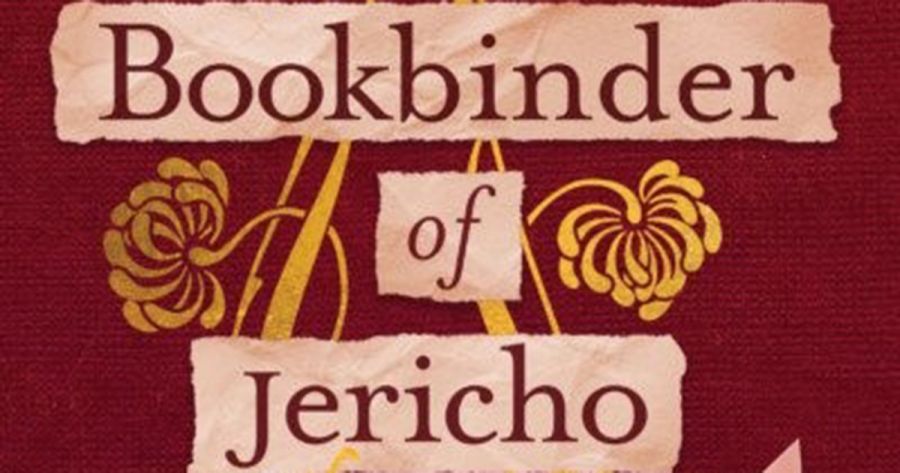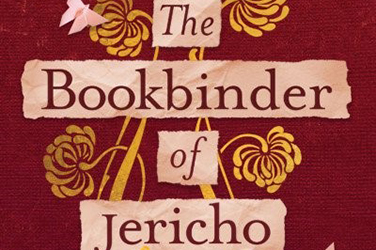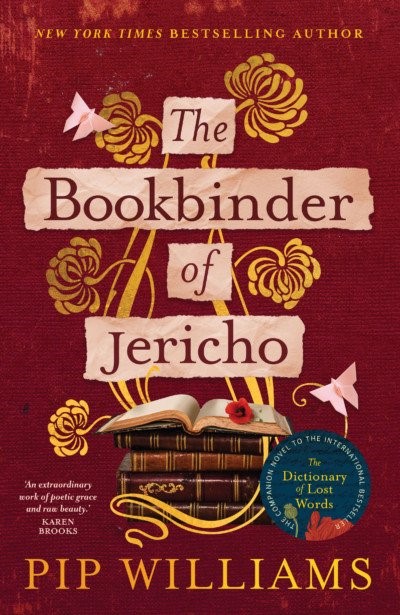
- Free Article: No
- Contents Category: Fiction
- Review Article: Yes
- Article Title: Peggy the obscure
- Article Subtitle: Pip Williams’s new novel
- Online Only: No
- Custom Highlight Text:
First, a confession. I am one of a tiny minority of readers who were underwhelmed by Pip Williams’s first novel, The Dictionary of Lost Words (2020). I thought it a splendid idea, one undermined by facile messages about how women’s words were ignored by the men who recorded our language and its meanings. Clearly, I was in a minority: Dictionary became an international bestseller, one of the most successful Australian novels ever published. Friends raved about it. I wondered what I wasn’t getting.
- Featured Image (400px * 250px):

- Alt Tag (Featured Image): Jane Sullivan reviews 'The Bookbinder of Jericho' by Pip Williams
- Book 1 Title: The Bookbinder of Jericho
- Book 1 Biblio: Affirm Press, $32.99 pb, 438 pp
- Book 1 Cover Small (400 x 600):

- Book 1 Cover (800 x 1200):

Peggy lives in Jericho, a part of Oxford I remember as quaint little lanes and trendy boutiques. In Peggy’s day, it is the home of the working class, the poor. Indeed, her family doesn’t even have a house: they live in the cramped confines of a narrowboat on the Oxford canal.
Peggy works every day with books, but she is not allowed to read them. She folds, gathers, and sews the pages together in a factory line of ‘bindery girls’, women employed by the Clarendon Press. The men get to do the fancier jobs, such as making the leather covers and applying the gold leaf.
This girl is smart and hungry to learn: she takes imperfect pages home and stores them all over the narrowboat, surrounding herself with the works of Shakespeare, a history of chess, Robert Burton’s Anatomy of Melancholy. Like Jude Frawley in Hardy’s novel, she dreams of winning entry into Somerville College. To do so, she must be very well read, and know ancient Greek.
But what hopes of that for a girl of Peggy’s class and times, particularly when those times get hard? The boys are off to fight the Hun and, like everywhere else, Oxford must face the ravages of war and, later, the Spanish flu pandemic. There is one particularly beloved obstacle: Peggy’s identical twin sister, Maude, who is different, special. Most people think her feeble-minded. Nowadays we would have a medical name for whatever ails Maude, but in her sister’s eyes it’s not an ailment. Maude is childlike, trusting. She needs looking after. She has a talent for ordering and making things out of paper. She doesn’t speak except to echo the speech of others, but everything she says seems uncannily accurate.
I had trouble with Maude at first. Isn’t she idealised, romanticised? Can she really be so consistently calm, intuitive, and perceptive? After a while I came to accept her not as a strictly realistic character but as a spirit, rather like Charles Dickens’s eccentric and mysteriously wise Mr Dick in David Copperfield, yet also informed by our contemporary knowledge of conditions such as autism.
The really interesting thing about Maude is how her sister reacts to her. Peggy has taken her under her wing ever since their mother died some five years earlier, and her great love for Maude is often undermined by resentment of her as a hindrance, and jealousy of her intuitive closeness to others. We sense that these complicated feelings will evolve during Peggy’s troubled journey towards maturity and fulfilment, and the difficult choices she has to make.
Around these central figures, Williams assembles a large cast of characters – genteel scholars, librarians, suffragettes, a raffish actress we first met in Dictionary – and many more. They are mostly fictitious, but a few on the periphery are real players (such as Oxford scholar Vera Brittain, whose memoir Testament of Youth was one of Williams’s research sources).
Oxford was a temporary home for Belgian war refugees, after the atrocities at Louvain. Peggy meets two very damaged characters: a soldier with physical scars and disfigurements, and a woman suffering from unnamed trauma. Both will become pivotal in her life.
Williams offers a clever pacing of detail and character that draws in the reader, whether for the more dramatic moments or simply the day-to-day routines. I have always wondered how books are made; Williams takes me through the whole process to the point of the finished article and its wonderful new-book smell, as good as perfume.
Peggy’s position within a strong network of female friends and mentors is well captured. Even the humble records of food and drink, often inexpertly cooked aboard the narrowboat, convey a vivid and warm picture of companionship.
As the tale goes on, the mood darkens and the tragedies multiply. Peggy’s original ambition to become an Oxford scholar at Somerville seems almost trivial compared to what is going on around her. Yet the urge of a brave young woman to reach her full potential against all the obstacles that inevitably confront her is one we can still recognise and applaud today.
So yes, I am a complete convert to a fine tale about love, friendship, ambition, pain – and work, from the most exalted scholarship to the duties of putting a book together, folding bandages, or cooking sausages, leeks, and potatoes.


Comments powered by CComment